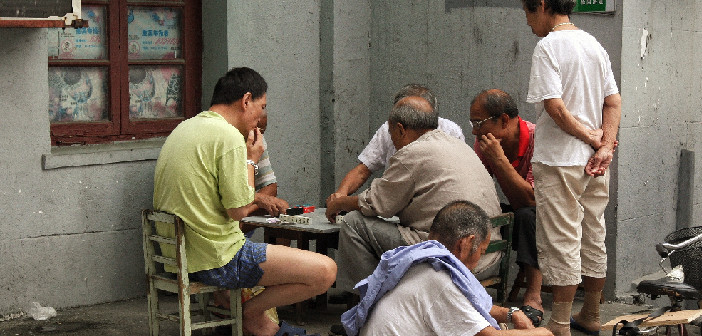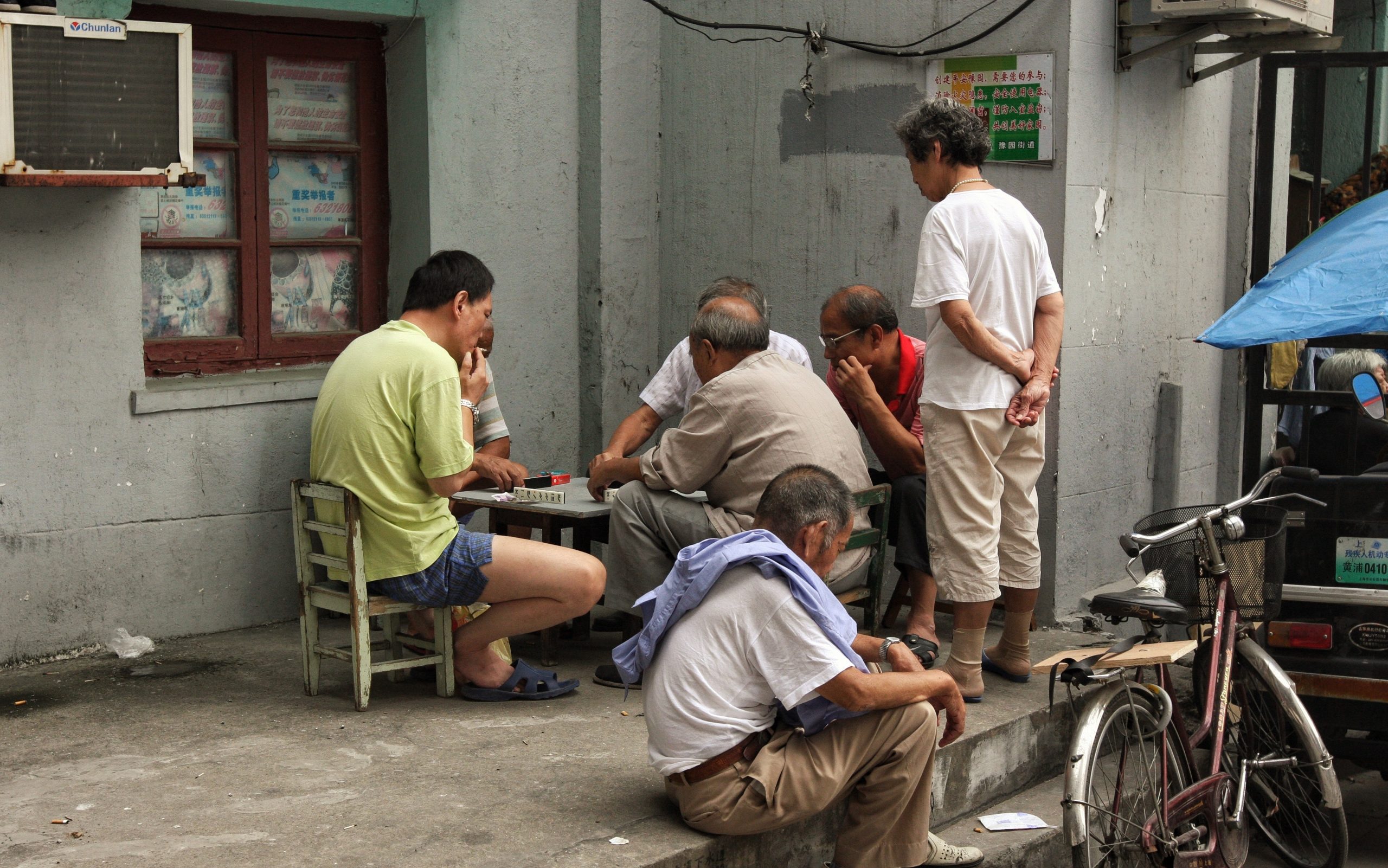
Have you ever spotted locals gathering around a table in the middle of the street in Beijing? Maybe you were confused by the situation or by the shuffling of the tiles. The locals were probably playing a very famous game called mahjong (麻将 májiàng).
Mahjong is a game played with sets of tiles, each based on Chinese characters and symbols. It’s a game of strategy, logic, skill, and a bit of luck.
Mahjong was developed in the mid-1800s. The game’s origins are unclear, and many theories exist. However, in the 1900s, the popularity of the game expanded around the world (mainly in Japan, England, and the US) resulting in new versions of mahjong’s rules.
To discover more about the fascinating culture of mahjong, we spoke with a mahjong player and teacher from the institution Our Beijing: Dominic De Couto
Could you introduce yourself?
My name is Dominic, I am from England, and I have been in Beijing for almost five years now.

I founded a company with my friend called Our Beijing. We have lots of great experiences for people to have a great time and learn more about Beijing in term of life culture and history. We have mahjong workshops, which I will be talking about, but also jianbing workshops, e-bike tours, walking tours, food tours, trips to the Great Wall, day trips to the river, or even paddleboarding experiences.
How was mahjong introduced to you?
I was introduced to mahjong by Culture Yard (a Chinese language school) and a friend, and I have been playing kind of often since! After we founded Our Beijing, we now concentrate on experiences, and Culture Yard on the Chinese language.

The first time Dominic played mahjong!
Why do you find mahjong interesting?
It is one of those local fun things to do, especially in the hutongs, where locals are playing on the streets. It has always been something I wanted to be involved in. Since it is played all around the country, when I meet up with friends from other cities in China, we can just sit down and play mahjong as we would do with cards.
“You just feel more part of China knowing how to play a local game,” says Dominic.
Do you have mahjong competitions?
During the classes, people play and get a bit competitive sometimes, but nothing like a real competition. We have been speaking with The Hutong (a culture exchange center) where we also host monthly classes, about setting up a mahjong club. We also offer private workshops at people’s homes and other locations we can travel to. There will be more people knowing how to play, so maybe this will become very competitive. Hopefully, it will open soon.
Do you enjoy teaching others?
Well, we have a local Beijing teacher. She is amazing and has been playing her whole life. As a great teacher, she is the one who teaches in our workshop. I still offer some help, especially in bigger groups. I sometimes try and teach friends, especially when my friends want to play with money!! I think I will definitely teach my friends when I come back to England.
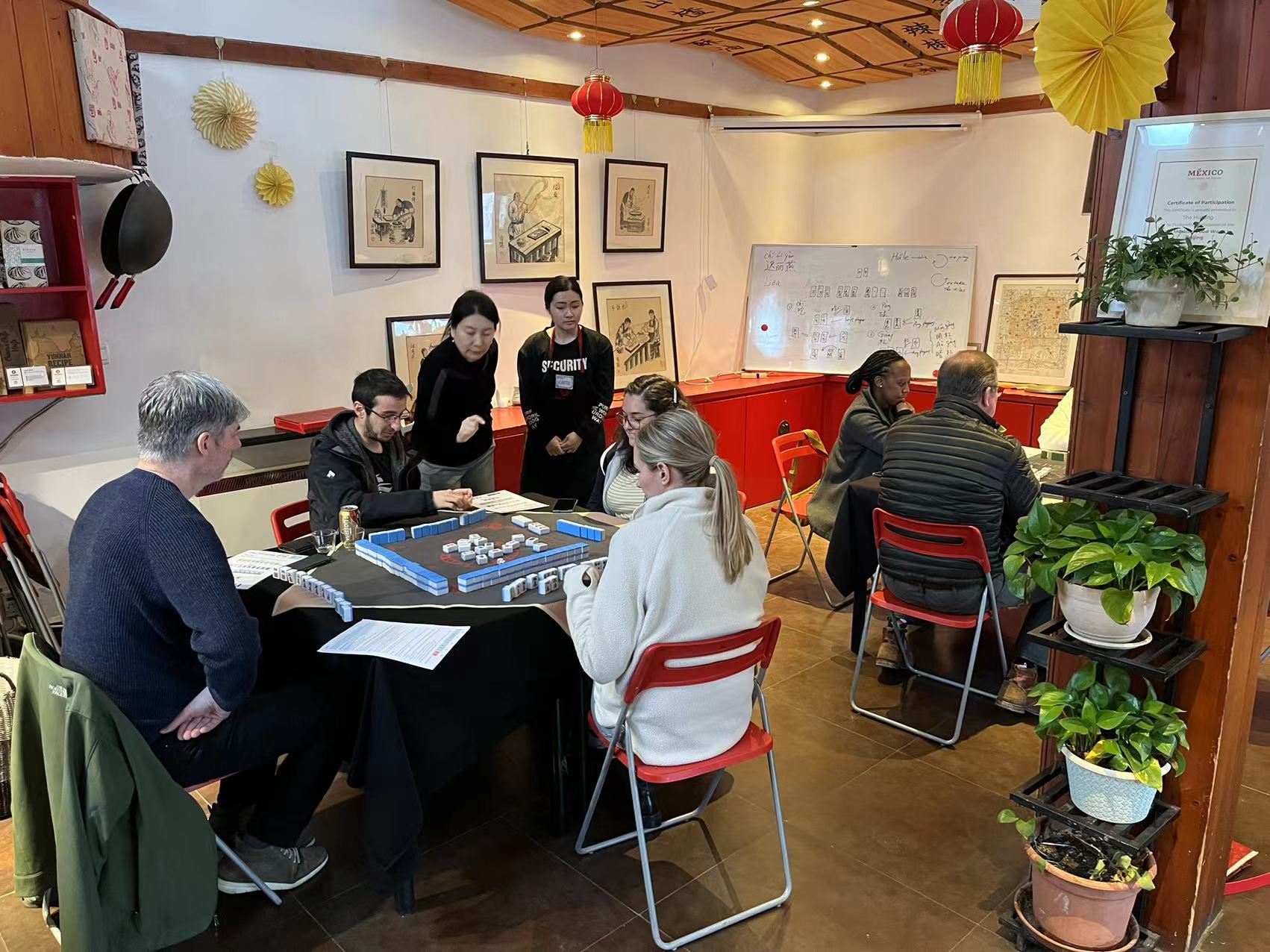
What types of students join your classes?
With most of our experiences some local Chinese also join in if they speak English, but mainly expats. Mostly people between 35 to 50 come to our workshop. But mahjong is super fun so I would like to get more young people playing.
In Chinese culture, who usually plays mahjong?
Here, it is the older generation. Especially retirees in the hutongs, just playing all day in the streets.
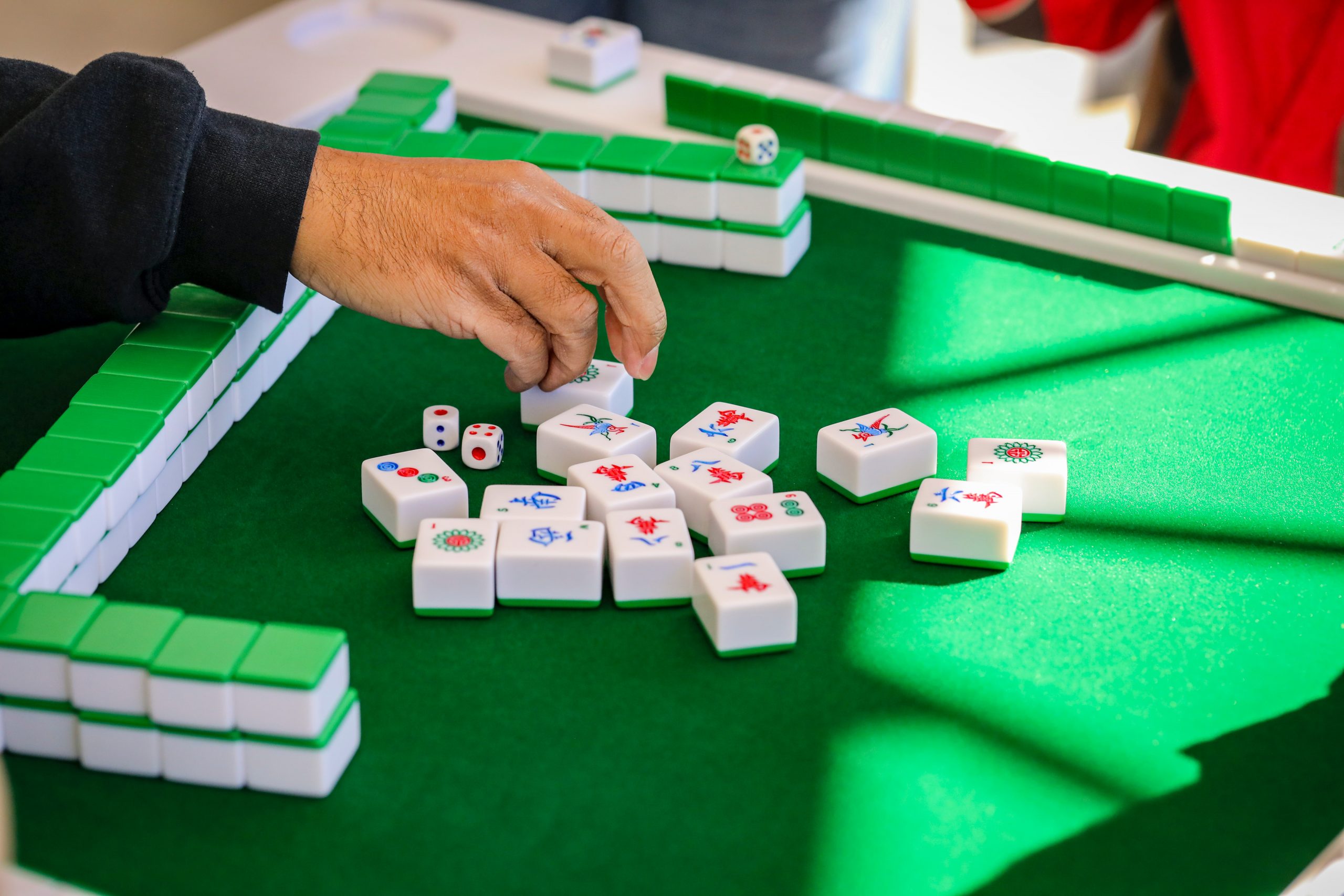
What place does mahjong have in Chinese culture?
It is an important social activity, especially for friends and family. It’s just a special time meeting up with your mates and having fun.
Have you ever tried playing mahjong in the streets with locals?
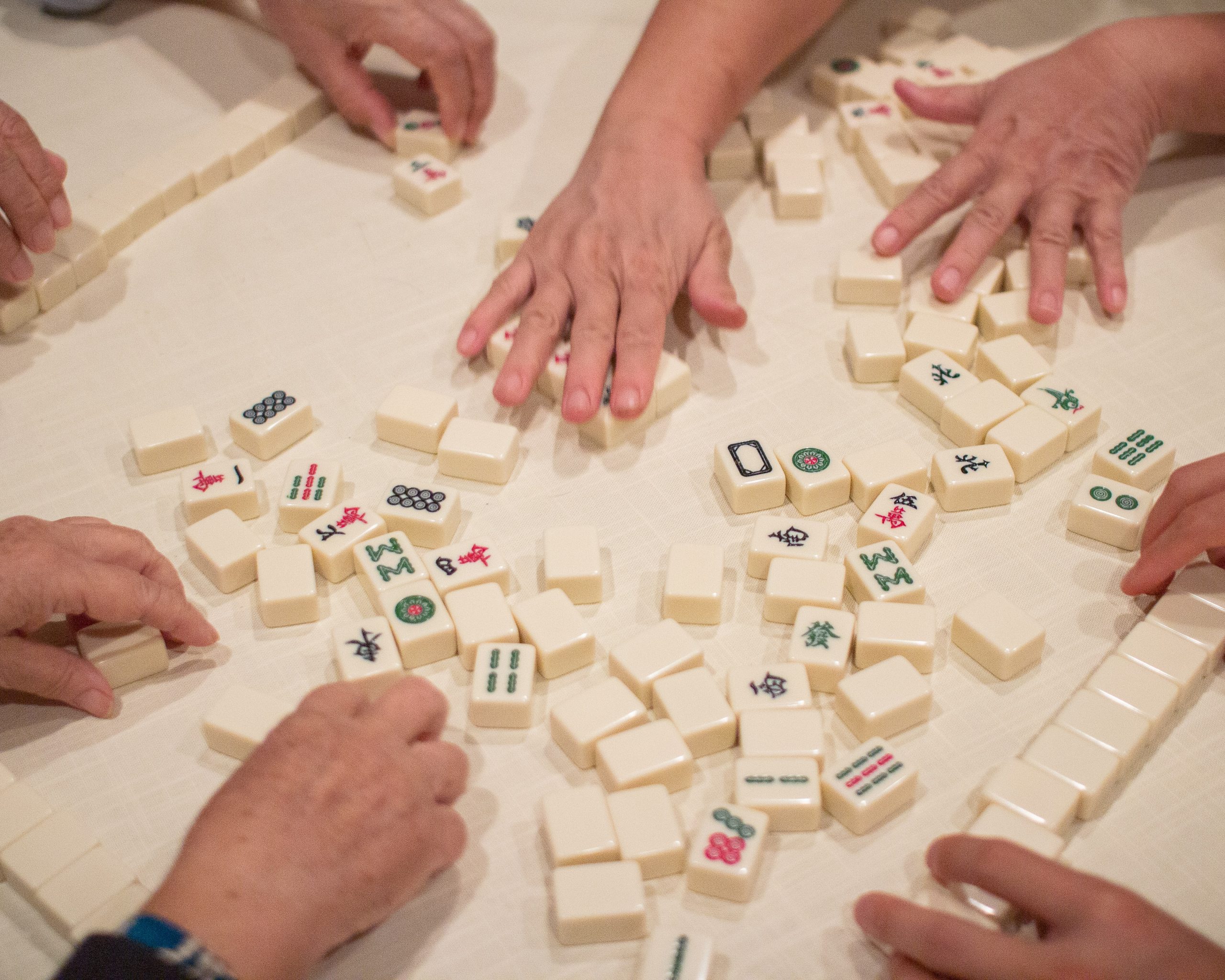
In my experience of playing with locals, it has been so quality and welcoming. Even if it’s sitting on a chair outside chilling and having a drink, I really recommend people doing something with locals to feel a part of the community.
It is really getting over that first barrier of fear. Your level does not matter because the atmosphere is really amazing and the locals so welcoming.
“People say that Life starts outside of your comfort zone, and it’s true,” says Dominic.
The language barrier, sadly, often [discourages]people. I have sat down, played, and drunk with people, and had no idea what they were saying, but it does not stop you from enjoying experiences together.
What are the intellectual benefits of mahjong?
Not only on the social, fun, and cultural aspect, I think it’s also good for your brain because you must think tactically.
Exactly why I think it would be great to get the younger generation playing more. Especially now, where a lot play on their phones or tablets.
Playing mahjong has more than one benefit: the social and intellectual aspect, overcoming your fears, and overall having a good time.
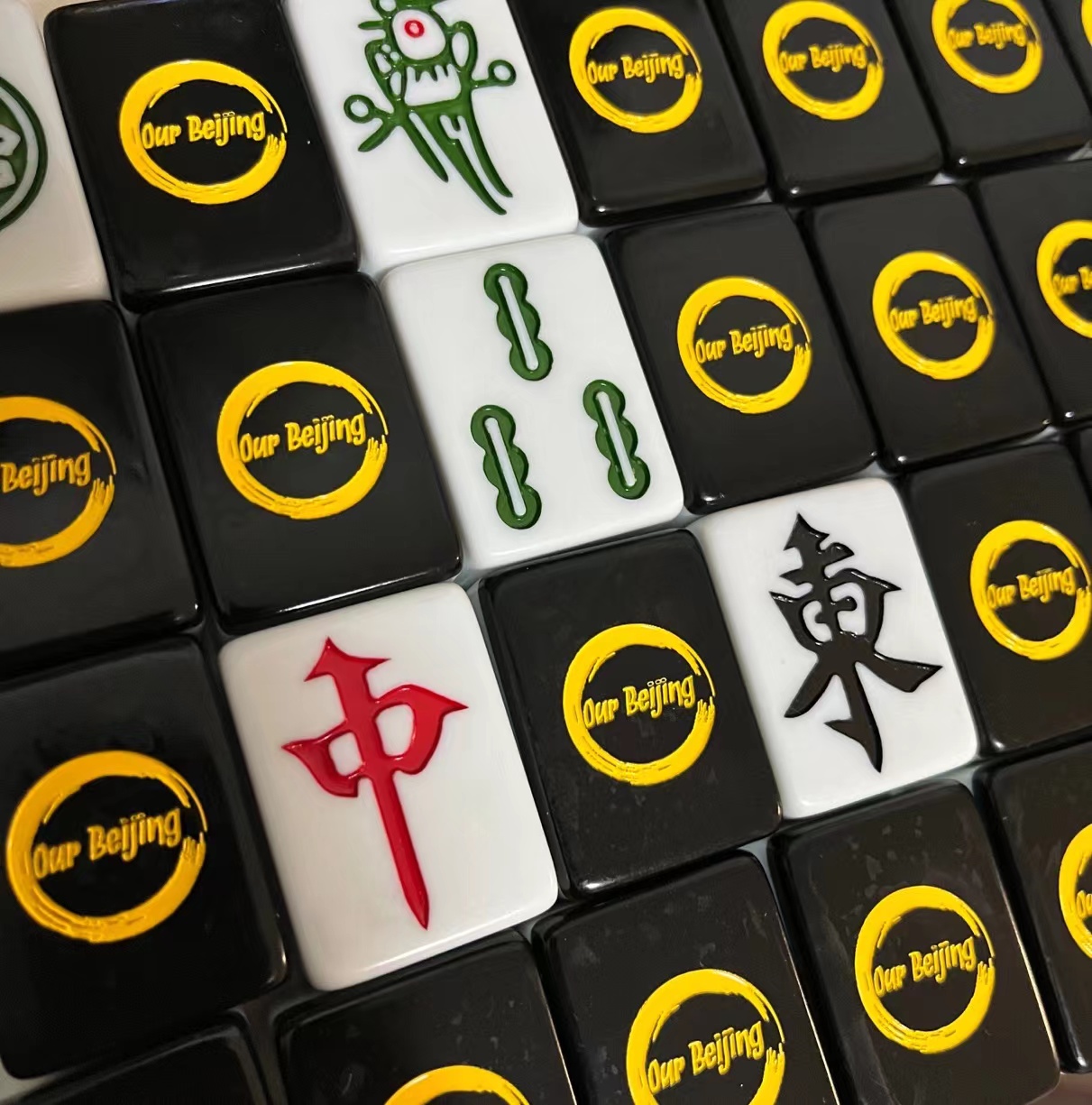
Mahjong will be a part of Chinese culture forever – Aug 1 was even designated International Mahjong Day!
If you are interested in any of their workshops, feel free to check out Our Beijing’s WeChat account.


Images: Dominic, the Beijinger, Pexels, Canva, Unsplash

